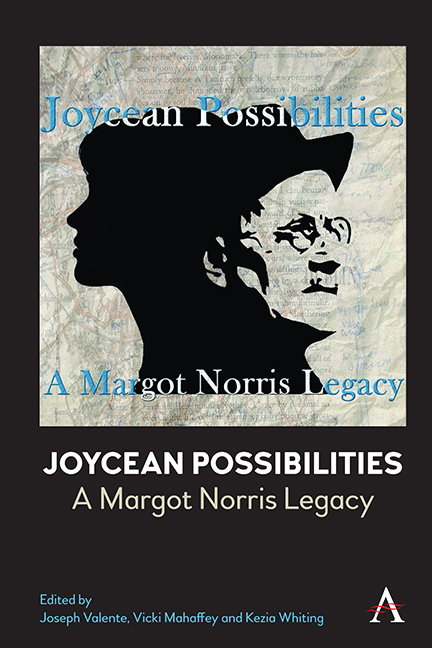6 - Ulysses: Thoughts in Isolation
Published online by Cambridge University Press: 20 April 2024
Summary
I
I write in isolation, confined like other Joyce scholars because of the spring 2020 COVID-19 pandemic. Gone for now is my usual mixture of private concerns and other public, sometimes Joyce-related, events. Gone, too, is the biggest annual Joyce occasion, the International James Joyce Foundation's Bloomsday conference scheduled this year for Trieste, as are smaller events, including the New York James Joyce Society's meeting in late March to celebrate the publication of my new book, The Necessary Fiction: Life with James Joyce's “Ulysses.”
Writing that memoir made me think a great deal about the effect of reading Ulysses in the first place and then rereading it, in my case many times. I think about that again in these unusual circumstances—with particular attention to Margot Norris’ groundbreaking book on reading and rereading Joyce's novel, Virgin and Veteran Readings of “Ulysses,”—and also about the larger Joycean scholarly community that provides an elaborate context for the vast “veteran readings” of the book. Now, with much time available but without any chance to walk much around my community, I can still accompany Leopold Bloom on his journey through Dublin.
Virgin and Veteran Readings contrasts an imagined first reading of Ulysses with subsequent rereadings. When I first encountered Ulysses, I qualified in many ways as Norris’ “virgin reader.” I read the book only because it was the first one in a fall-term 1966 undergraduate course on the modern European novel. I knew nothing about James Joyce and hadn't read Dubliners or A Portrait of the Artist as a Young Man or, for that matter, The Odyssey. I was unaware of what was coming in the book regarding Stephen Dedalus, Leopold Bloom, or Molly Bloom. But in other ways, because of the course's structure and my growing interest in Ulysses, I slid into a kind of quasi-veteran reader long before I finished the book. The class included twelve hours of lectures by Professor Peter Bien; about a hundred pages of mimeographed notes (only readers of a certain age will know what this means); and two secondary books, Stuart Gilbert's James Joyce's “Ulysses” (from 1930) and Frank Budgen's James Joyce and the Making of “Ulysses” (1934).
My reading of the book with its excitement over what I was encountering provided an unexpectedly delightful first run through Ulysses.
- Type
- Chapter
- Information
- Joycean PossibilitiesA Margot Norris Legacy, pp. 75 - 86Publisher: Anthem PressPrint publication year: 2022



